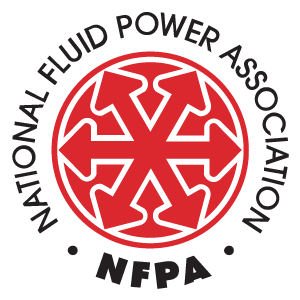As part of an effort to bring more information about the regulatory and legal environment facing American manufacturers, NFPA is monitoring the newsfeed of the National Association of Manufacturers (NAM) and will be bringing important updates like this to the attention of NFPA members.
For nearly three years, many manufacturers in the U.S. have been operating at a disadvantage to their foreign competitors due to the lack of a Miscellaneous Tariff Bill. And that needs to change, the NAM told Congress two weeks ago.
What’s going on: The NAM, along with more than 200 manufacturers and industry partners, urged key members of the House and Senate to pass the MTB as soon as possible this year.
The measure—which expired at the end of 2020—temporarily eliminates or reduces tariffs on products not readily available in the U.S. and is typically renewed by Congress every few years on a bipartisan basis.
The previous MTB was passed unanimously in 2018, and in June 2021, the Senate approved an amendment including it and other trade provisions by a strong bipartisan vote of 91–4.
Why it’s important: Since the last MTB’s expiration, manufacturers and other businesses have paid more than $1.4 billion in anticompetitive tariffs to get items they are unable to source in the U.S., according to an NAM analysis.
In addition to incentivizing overseas manufacturing and costing jobs, the additional expenses are harming local economies and American taxpayers by increasing the prices on manufactured goods.
What should be done: “Congress can reverse course by passing the MTB through 2026 with meaningful retroactivity and reauthorizing future MTB cycles without broad and arbitrary restrictions that would be difficult to implement,” the NAM and partner groups said.
“Congressional passage of the MTB will spur growth: according to the U.S. International Trade Commission, tariff relief under the previous MTB boosted U.S. GDP annually by as much as $3.3 billion and output annually by as much as $6.3 billion.”
The last word: “If Congress is serious about supporting manufacturers and workers in the United States, they must prioritize the passage of the MTB by the end of this year,” said NAM Director of Trade Facilitation Policy Ali Aafedt.
The NAM, members of the NAM’s Council of Manufacturing Associations and Conference of State Manufacturers Associations recently launched Manufacturers for Sensible Regulations, a coalition addressing the impact of the current regulatory onslaught coming from federal agencies. To learn more, and get involved, go here.
Recent Posts
Explore Speaker Lineup for NFPA’s 2025 Annual Conference
2025 NFPA Annual ConferenceFebruary 25-27, 2025Tucson, AZRegistration Now Open NFPA’s upcoming 2025 Annual Conference will feature a lineup of expert speakers dedicated to sharing valuable insights and information with attendees. Ranging in topics from geopolitical disruption to the future of fluid power updates, attendees can expect the presentations to provide exclusive content that can’t be found anywhere…
Please Complete and Share Survey on Drivers in Fluid Power Customer Markets
The National Fluid Power Association (NFPA) seeks to engage with stakeholders across the fluid power supply chain to publish a technology roadmap for fluid power in industrial, or in-plant, applications. This roadmap will be a document that describes the evolving needs of companies in fluid power’s many industrial customer markets, the degree to which fluid…
Oxford Economics Winter Fluid Power Forecast Out Now!
Global Fluid Power Report and Forecast includes a global macro summary, by-country customer market forecast & analysis, as well as by-country fluid power industry forecasts. Countries covered in the report: US, Canada, Mexico, Brazil Poland, Netherlands, Italy, Germany, France, Belgium, UK, Russia, Taiwan, South Korea, Japan, Indonesia, India, China, Australia, UAE, and South Africa. Oxford Economics released the…



